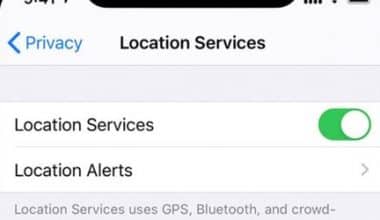In today’s fast-paced and ever-evolving digital landscape, ensuring the protection of sensitive information and safeguarding against cyber threats has become a top priority for organizations worldwide. This is where the cyber security operation center emerges as an invaluable asset. Serving as a comprehensive framework for proactive defense and incident response, a security operation center acts as a central nerve center, continuously monitoring, analyzing, and mitigating security risks. With the rise of security operation centers as a service, businesses can now leverage the expertise of a dedicated security operation center analyst to enhance their cyber security posture and stay one step ahead of potential threats.
What is a Security Operation Center?
A security operation center (SOC) is a centralized facility that monitors and responds to cybersecurity incidents. Additionally, it acts as a focal point for ongoing threat detection, analysis, and mitigation. A SOC ensures proactive defense against changing cyber threats by utilizing cutting-edge technologies and knowledgeable analysts.
A SOC also provides real-time monitoring and quick incident response capabilities around the clock. In order to successfully identify potential security breaches, investigate incidents, and reduce risks, it also makes use of cutting-edge tools and procedures. A SOC serves as a crucial line of defense for enterprises with its holistic approach, assisting them in thwarting cybercriminals and safeguarding critical data.
Cyber Security Operation Center
The Cyber Security Operation Center (SOC) is a specialized building that protects businesses from online dangers. It also acts as a central location for tracking, evaluating, and responding to security incidents. Moreover, the SOC provides proactive defense and quick incident response capabilities thanks to its cutting-edge technologies and qualified analysts. In order to successfully identify and prevent any security breaches, it also uses cutting-edge tools and procedures. The SOC also works around the clock to provide real-time monitoring and guarantee the ongoing security of sensitive data. In today’s digital environment, the SOC serves as a crucial asset for enterprises, assisting them in remaining one step ahead of hackers with its complete approach.
Security Operation Center Framework
A Security Operation Center (SOC) Framework is a comprehensive and structured approach that provides organizations with a clear roadmap for establishing and operating a SOC. By implementing this framework, organizations can effectively address the ever-evolving cyber threat landscape and ensure the protection of their digital assets.
One key aspect of a SOC framework is outlining the necessary components. This includes defining the roles and responsibilities of SOC personnel, establishing a robust technology infrastructure, and implementing a variety of security tools and solutions. These components work together harmoniously to create a strong defense against potential threats.
Moreover, a SOC framework guides organizations in defining the processes and procedures that drive effective cybersecurity operations. It helps establish protocols for continuous monitoring, incident detection, and response. Additionally, it incorporates incident escalation and communication mechanisms, ensuring that critical incidents are promptly addressed and appropriate stakeholders are informed.
By leveraging industry best practices and standards, the SOC Framework enables organizations to align their security operations with established guidelines. It takes into account frameworks such as the NIST Cybersecurity Framework, ISO 27001, and other relevant standards to ensure a comprehensive and robust security posture. This adherence to recognized standards helps organizations build credibility
Security Operation Center as a Service
Security Operation Center as a Service (SOCaaS) is a model where organizations outsource their SOC functions to a third-party provider. Additionally, this service offers expert-level security monitoring, threat detection, and incident response. Moreover, SOCaaS providers leverage advanced technologies and tools to deliver round-the-clock protection against cyber threats. In addition, organizations benefit from the scalability, flexibility, and cost-effectiveness of SOCaaS, as they can access comprehensive security services without the need for extensive infrastructure and staffing investments. Furthermore, SOCaaS providers often offer customizable service packages tailored to the specific needs and requirements of organizations, ensuring a personalized approach to cybersecurity.
Security Operation Center Analyst
A Security Operation Center (SOC) analyst is a skilled professional responsible for monitoring, analyzing, and responding to security incidents. In addition, they employ cutting-edge tools and methods to find potential dangers, look into security lapses, and reduce risks. SOC analysts also play a vital role in preserving the security posture of businesses by providing proactive threat intelligence, real-time monitoring, and incident response. Additionally, they work together with other members of the SOC team, exchanging knowledge and enhancing the overall efficiency of cybersecurity operations. SOC analysts are crucial in spotting new threats and putting in place efficient remedies to protect sensitive data and systems, thanks to their experience and understanding.
How Does a SOC Work?
A SOC operates in real-time by continuously monitoring, identifying, evaluating, and responding to security incidents. It also makes use of modern technologies such as SIEM, IDS/IPS, and threat intelligence feeds. SOC analysts also evaluate and prioritize warnings, categorizing them based on severity and impact. Furthermore, they work with stakeholders, particularly IT teams, to coordinate incident response and put required mitigation measures in place. A SOC also performs proactive threat hunting, looking for indicators of compromise and potential vulnerabilities. Furthermore, regular reporting and analysis of security events aid in the identification of patterns, the improvement of defenses, and the informing of decision-making processes. The SOC’s ultimate purpose is to maintain a strong security posture, mitigate risks, and respond quickly to any cyber threats or incidents.
What Does a Security Operations Center Do?
A Security Operations Center (SOC) carries out a number of crucial tasks to safeguard enterprises against online threats.
- It also continuously scans for potential security problems on networks, systems, and applications.
- The SOC also analyzes alerts, looks into incidents, and acts quickly to reduce risks.
- SOC teams also work with internal and external partners to share threat information and plan incident response activities.
- A SOC also performs proactive threat hunting, penetration testing, and vulnerability assessments to find any potential holes.
- It is essential to incident management, recording, and evaluating security events to strengthen defenses and stop further problems.
- In the end, the SOC’s main goal is to protect organizational assets’ confidentiality, integrity, and availability while limiting the effects of security breaches.
What are NOC and SOC?
A Network Operations Center (NOC) and a Security Operations Center (SOC) are two distinct entities that play crucial roles in ensuring the smooth functioning and security of an organization’s IT infrastructure.
The NOC focuses on the operational aspects of managing and maintaining network infrastructure. Additionally, it monitors network performance, troubleshoots issues, and ensures the availability of network services. Furthermore, the NOC oversees tasks such as network configuration, device management, and capacity planning. Transition words like “Moreover,” “Furthermore,” and “In addition” can be used to enhance sentence flow.
On the other hand, the SOC is primarily concerned with the security of an organization’s systems and data. Furthermore, it monitors and analyzes network traffic, logs, and security events to detect and respond to potential cyber threats. Moreover, the SOC employs advanced technologies and methodologies to identify vulnerabilities, mitigate risks, and investigate security incidents. Transition words like “Additionally,” “Furthermore,” and “Moreover” can be used to enhance sentence flow.
Both the NOC and SOC are integral parts of an organization’s IT operations. The NOC ensures the smooth functioning of network infrastructure. The SOC focuses on safeguarding against cyber threats and maintaining a strong security posture. Together, they form a comprehensive approach to network management and security, ensuring the reliability, availability, and security of an organization’s IT systems.
What Skills Make an Effective Security Operations Center Analyst?
Analysts at the Security Operations Center (SOC) must have a mix of technical knowledge, critical thinking ability, and communication skills. They also have a thorough awareness of cybersecurity principles, tools, and technology. Furthermore, they stay current on the latest threats and industry trends in order to recognize and respond to developing hazards efficiently. Furthermore, SOC analysts have good analytical skills, allowing them to effectively examine and interpret complicated security data. Also, they display problem-solving talents in order to investigate and fix security incidents as soon as possible. The competent SOC analyst has good communication skills in order to effectively communicate technical knowledge to diverse stakeholders and work effectively within the SOC team.
Is security a NOC job?
The Network Operations Center’s (NOC) security is crucial, but it is not the only concern. A NOC’s major role is to monitor and maintain network infrastructure to ensure its seamless operation. Furthermore, NOC professionals handle activities such as network configuration, performance monitoring, and network troubleshooting. They may, however, play a part in fundamental security measures such as creating access controls and firewall setups.
The Security Operations Center (SOC), on the other hand, specializes in cybersecurity. A SOC also monitors and responds to security incidents. It detects and mitigates cyber threats, and ensures the overall security of an organization’s systems and data. SOC analysts are also in charge of advanced security duties like threat hunting, incident response, vulnerability assessments, and security event analysis.
While security is part of the responsibility of a NOC, the SOC is specifically built to manage the complexities and problems of cybersecurity. However, offering a complete approach to protecting an organization’s network and critical data.
FAQs
What are the components of a SOC?
A central processor unit, memory, input and output ports, peripheral interfaces, and supplementary storage devices are the most common components of a SoC.
What are the criteria for a security operations center?
The foundation of an organization’s capability to prevent, detect, and respond to assaults. Building out a SOC necessitates strong senior management support, well-defined quantifiable targets, and a specific SOC capability maturity level.
What makes a good SOC?
The top SOC analysts are always improving their abilities in order to obtain an advantage over their competitors and create timely answers while working in difficult settings. They also monitor and analyze attempts at social engineering. Internal risks and a lack of operational security awareness can occasionally lead to incidents.
Related Articles
- INCIDENT MANAGEMENT SYSTEM: All You Need To Know
- CYBER THREAT INTELLIGENCE: Meaning, Tools, Analyst & Salary
- PRODUCTION MANAGEMENT: Definition, Functions, and Importance
- MARKETING TECHNOLOGY: Definition, Types, and How to Build One
- SALESFORCE ESSENTIALS: What It Is, Pricing, Features, Reviews, and Alternatives
- Key Promotional Materials for Every Business to Win Customers Over in 2023






